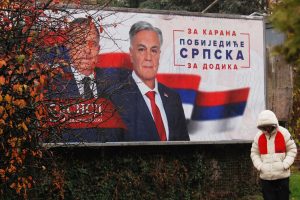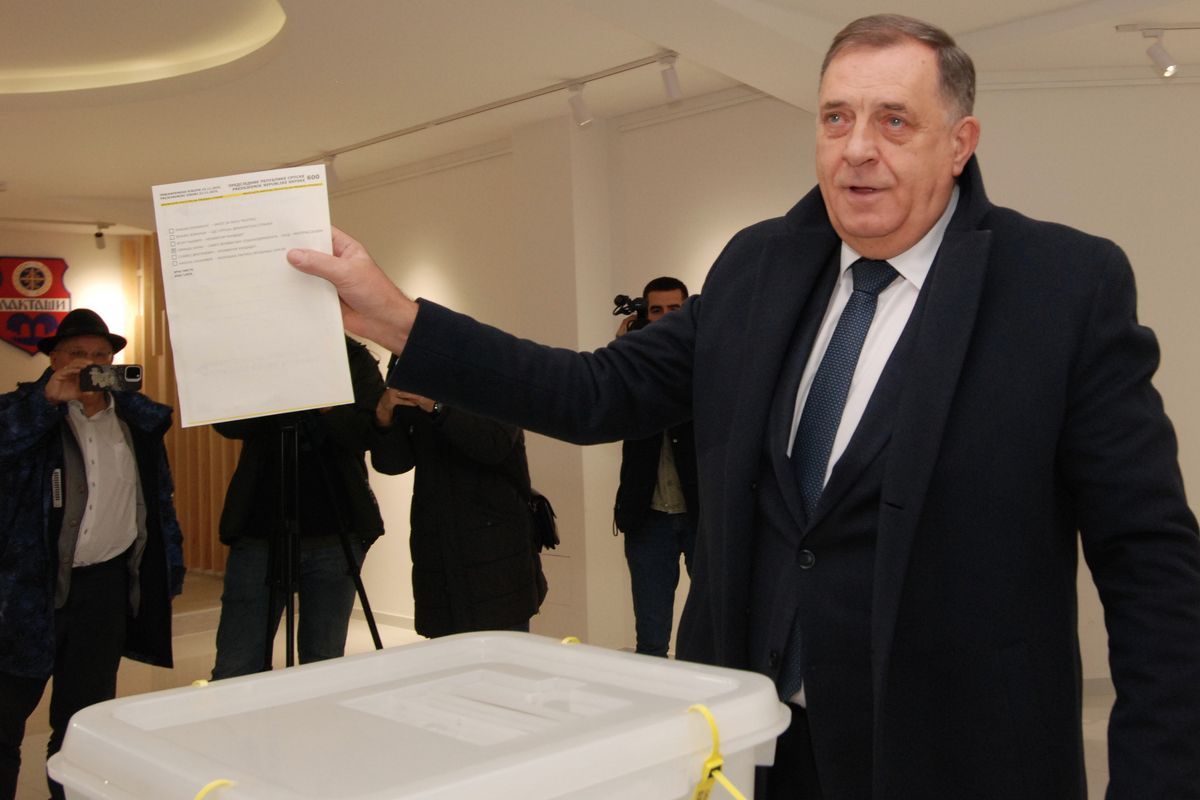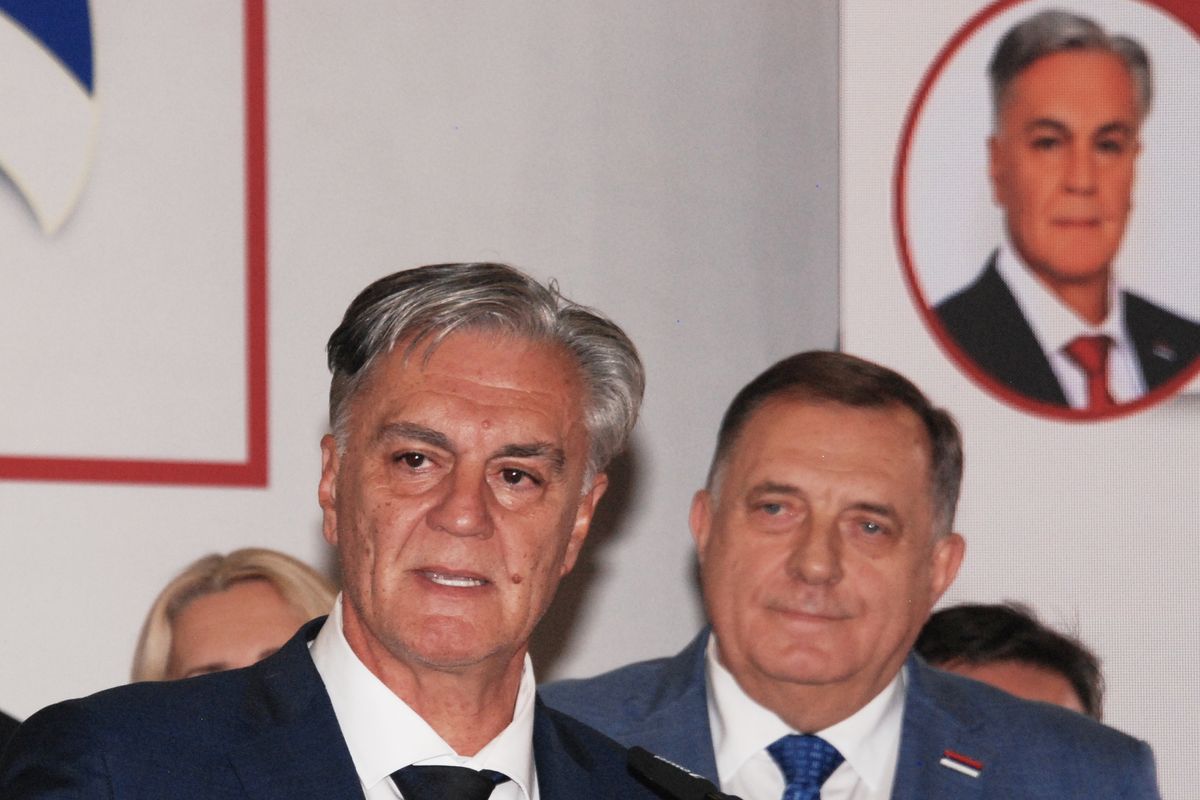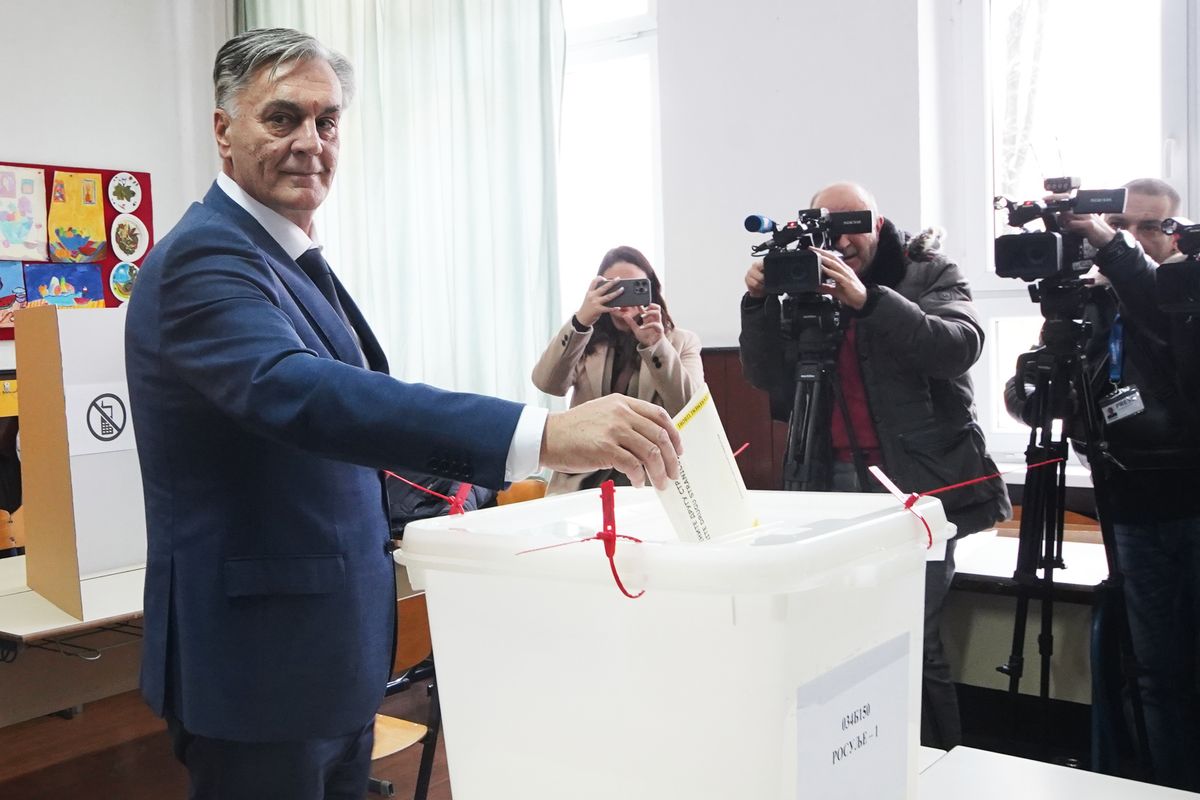SARAJEVO, Bosnia-Herzegovina (AP) — An ally of separatist Bosnian Serb leader Milorad Dodik was leading the presidential election in the Serb-run half of Bosnia, according to near-complete preliminary results on Monday, as the opposition claimed a major vote fraud.
The snap vote on Sunday in Republika Srpska was held after Dodik was removed from the presidential office over separatist policies that were stoking instability in the ethnically tense Balkan nation.
Dodik’s ally Sinisa Karan won around 50% of the ballots while his main opponent Branko Blanusa won around 48%, with about 99% of the votes counted.
Blanusa and other opposition leaders claimed “massive vote rigging” in three towns near the border with Serbia. They alleged the irregularities included illegal “importing of voters” from neighboring Serbia, suspected of casting their ballots for the pro-Dodik candidate.
“These elections are not over yet, they will be over when the election process is repeated (in the three towns) where thanks to election manipulations the results do not reflect the will of the people,” Blanusa said. “If we were to give up now, we would be the same as them — we would deceive and betray the people.”
Dodik was ousted in August, after a Bosnian court convicted him of disobeying the orders of the international High Representative for Bosnia, sentenced him to a year in prison and banned him from holding any public office for six years. He has since paid a fine to avoid jail and stepped aside as president while staying at the helm of his governing Party of Independent Social Democrats.
Dodik on Sunday declared victory for Karan and lashed out at the proceedings that led to his ouster from the presidency.
“They wanted to bring down Dodik in an unfair process and now they got two Dodiks and they will watch us every day,” he said.
Karan added that “we will continue where we left off.”
Bosnian Serbs are in charge of about one-half of Bosnia. The other half is run jointly by Bosniaks, who are mainly Muslims and Croats. The two entities are bound together by a central administration.
Four more contenders took part in Sunday’s race.
Bosnia’s complex political structure was established 30 years ago in a U.S.-brokered peace agreement to end a bloody 1992-95 ethnic conflict that killed more than 100,000 people and left millions homeless.
The war started when Bosnia declared independence from Yugoslavia and the country’s Serbs took up arms to carve up their own territory, hoping to join with neighboring Serbia. Dodik still advocates eventual separation of the Serb-controlled entity from Bosnia, which he has repeatedly declared unviable.
Dodik had faced U.S. and British sanctions for such policies. But the United States lifted the sanctions last month after Dodik agreed to step down. He also has repeatedly clashed with the international envoy overseeing the peace, Christian Schmidt, and declared his decisions illegal in Republika Srpska.




